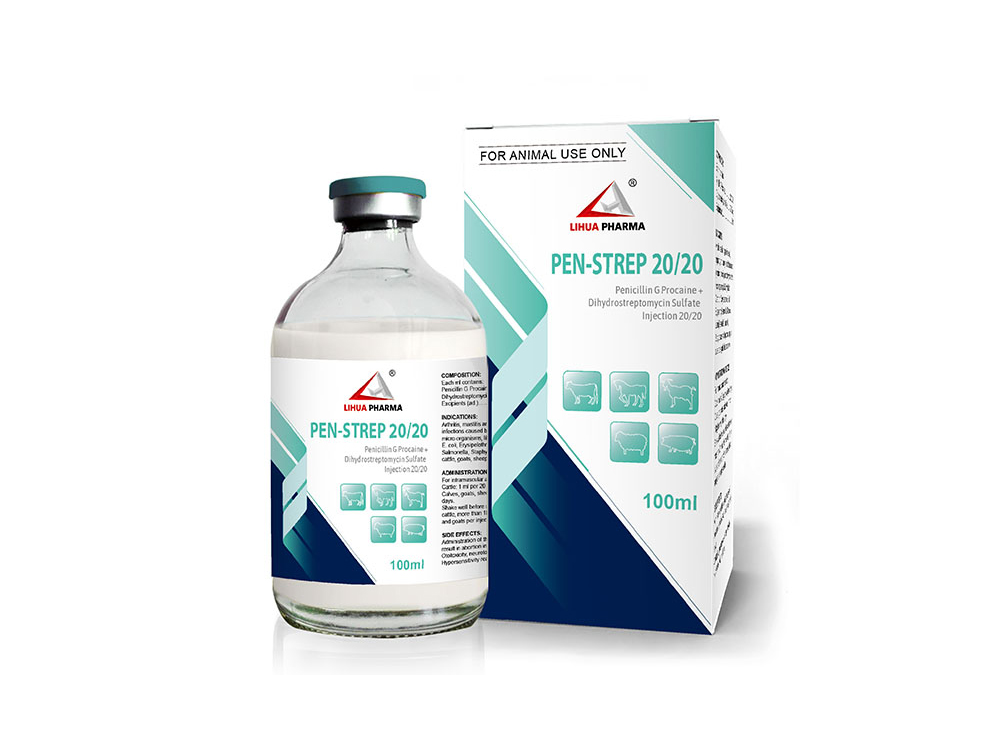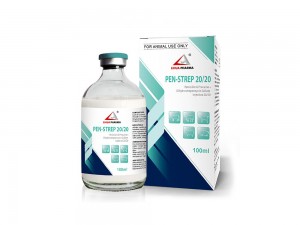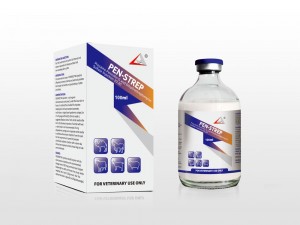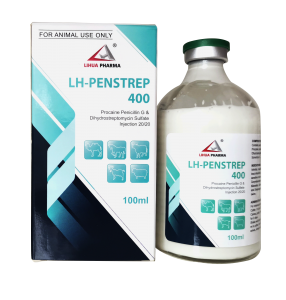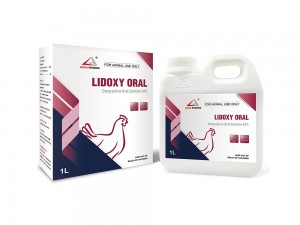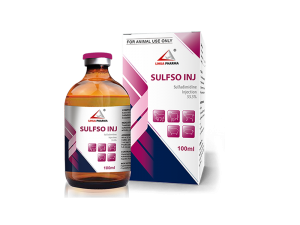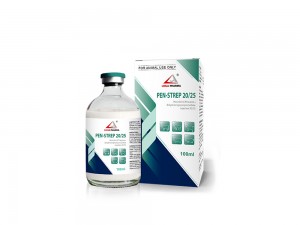PEN-STREP 20/20
The combination of procaine penicillin G and dihydrostreptomycin acts additive and in some cases synergistic. Procaine penicillin G is a small-spectrum penicillin with a bactericidal action against mainly Gram-positive bacteria like Clostridium, Corynebacterium, Erysipelothrix, Listeria, penicillinase negative Staphylococcus and Streptococcus spp. Dihydrostreptomycin is an aminoglycoside with a bactericidal action against mainly Gram-negative bacteria like E. coli, Campylobacter, Klebsiella, Haemophilus, Pasteurella and Salmonella spp.
Indications
Arthritis, mastitis and gastrointestinal, respiratory and urinary tract infections caused by penicllin and dihydrostreptomycin sensitive micro-organisms, like Campylobacter, Clostridium, Corynebacterium, E. coli, Erysipelothrix, Haemophilus, Klebsiella, Listeria, Pasteurella, Salmonella, Staphylococcus and Streptococcus spp., in calves, cattle, horses, goats, sheep and swine.
administration and dosage:
For intramuscular administration:
Cattle and horses: 1 ml per 20 kg body weight for 3 days.
Calves, goats, sheep and swine : 1 ml per 10 kg body weight for 3 days.
Shake well before use and do not administer more than 20 ml in cattle and horses, more than 10 ml in swine and more than 5 ml in calves, sheep and goats per injection site.
contraindications
Hypersensitivity to penicillins, procaine and/or aminoglycosides.
Administration to animals with a seriously impaired renal function.
Concurrent administration of tetracyclines, chloramphenicol, macrolides and lincosamides.
side effects
Administration of therapeutic dosages of penicillin G procaine can result in abortion in sows.
Ototoxicity, neurotoxicity or nephrotoxicity.
Hypersensitivity reactions.
Withdrawal period
For kidney : 45 days.
For meat: 21 days.
For milk : 3 days.
NOTE: Not to be used in horses intended for human consumption. Treated horses may never be slaughtered for human consumption. The horse must have been declared as not intended for human consumption under national horse passport legislation.
Storage
Store below 30℃. Protect from light.
You may also be interested



